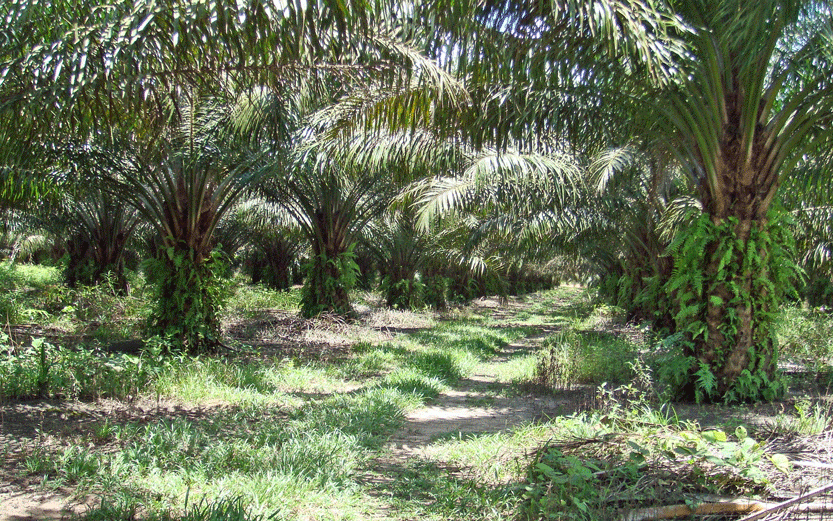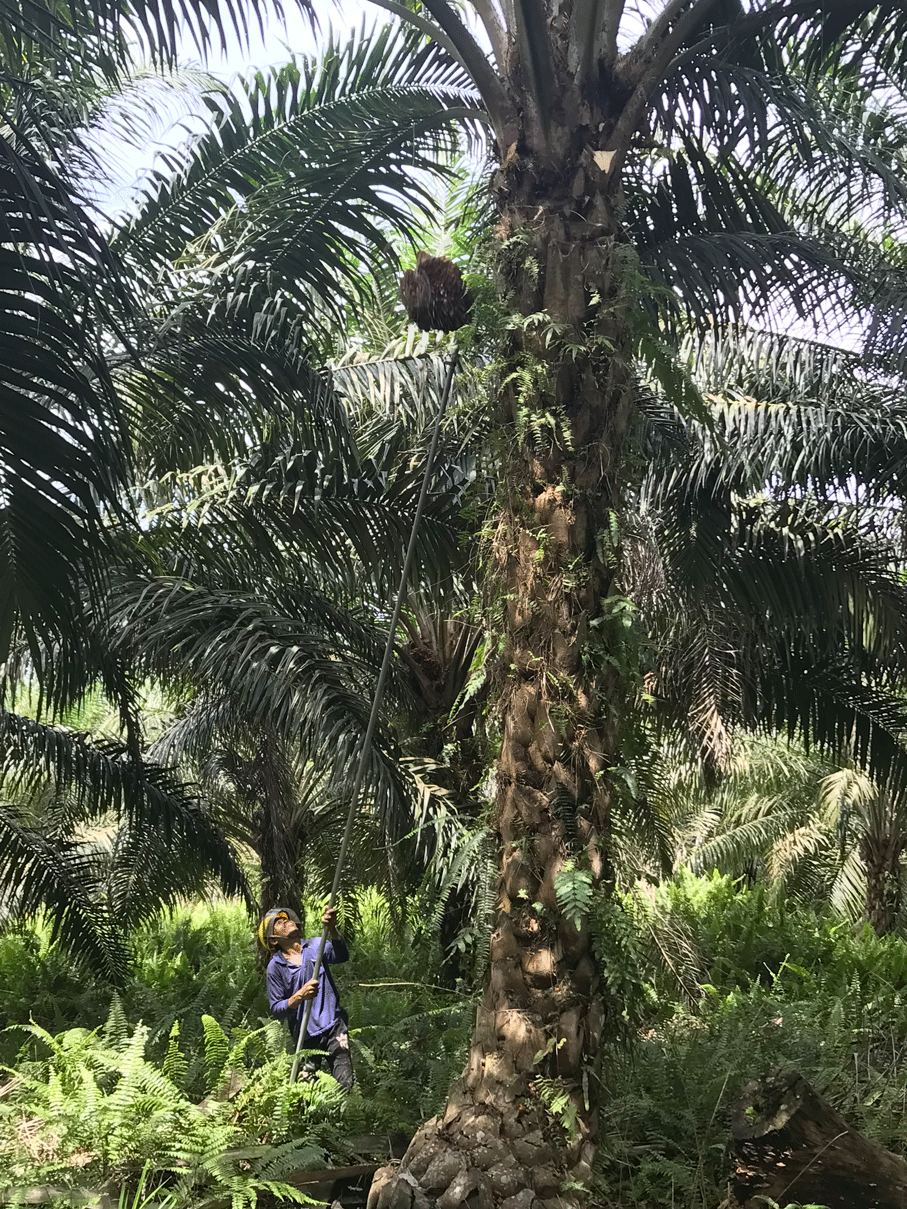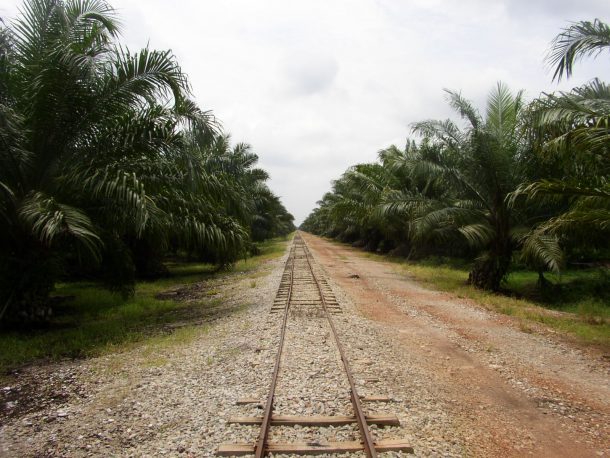Some of our clients that produce palm oil with the lowest environmental footprints, now give up on the European market and divert their production to the Asian market, currently much less restrictive in terms of environmental performances. This means that the previous achievements made by those companies may now be reverted, to compete in a more aggressive market with lower environmental requirements.
Although some RSPO certified producers of palm oil have already halved their carbon footprint and have set aside land for nature conservation, significantly reducing the impact on biodiversity in addition to reducing the carbon footprint, so that the best-in-class producers achieve a lower footprint than for other vegetable oils (such as rapeseed oil, soybean oil and sunflower oil), these efforts are not recognised by the new EU criteria for determining risk for indirect Land‐Use Change (iLUC).
In December 2018, the revised version of the EU Renewable Energy Directive, known as RED II (‘RED two’), entered into force. In March 2019, the European Commission published a Delegated Regulation supplementing the Directive by introducing criteria for the determination of high and low indirect Land‐Use Change (iLUC) risk associated with the expansion of feedstock production in land with high carbon stock.
The Delegated Regulation identifies iLUC risk based on the past direct land use change from 2008 onwards, regardless of the production system currently implemented, ignoring the geographical differences between producers and, de facto, disregarding the indirect nature of iLUC. The criteria do not trace the cause‐effect relationship between product demand and the indirect land use changes triggered. By not making any distinction between specific production systems, these criteria risk to exclude crops a priori, regardless of the environmental performance of the agricultural system, such as the GHG emissions per unit of product.
Palm oil is produced almost entirely (85%) in Indonesia and Malaysia, countries that in the last 20 years have experienced high deforestation. According to the criteria set by the RED II and detailed by the Delegated Regulation, palm oil from these countries cannot be counted as renewable when measuring target-achievement on the share of renewable energy in EU countries, because of high iLUC risk. In its current form, the iLUC criteria are scientifically unjustifiable and seem to protect the EU vegetable oil producers rather than the environment. This is sad news for RSPO certified companies and a dangerous development for forest and wildlife conservation in Indonesia and Malaysia.

Today we have sent out a brief press release on the findings from the Palm Oil Club project which has resulted in a detailed life cycle assessment (LCA) study of palm oil production.
The study compares the environmental impact of RSPO (Roundtable on Sustainable Palm Oil) certified sustainable palm oil with non-certified palm oil in Indonesia and Malaysia.
See the press release here: Certification of palm oil

At their plenary session this month, the Members of Parliament voted on a resolution calling on the European Commission to work towards a European certification scheme for palm oil entering the EU market.
This political move comes at a most opportune moment for us here at 2.-0 LCA consultants; as we just this week are able to announce that our crowd-funded initiative: LCA of RSPO certified palm oil is up and running with currently 12 palm oil producing/using industries as members of the club. The initiative aims to compare the environmental profile of certified palm oil to non-certified palm oil in the market. Our project will be based on the already existing certification scheme by RSPO – but we hope to produce evidence, using life cycle thinking, that will also be relevant for a possible European certification scheme.
The Members of Parliament also call for a ‘phasing out of the use of vegetable oils that drive deforestation by 2020’. In our previous analysis of various biofuels, including several different vegetable oils, we found that a significant hotspot in the biodiesel product system is indeed indirect land use (deforestation) (Schmidt and Brandão 2013; Schmidt 2015). Regardless of which vegetable oils are used for biodiesel, our findings indicate that an increase in the use of biodiesel will lead to higher greenhouse gas (GHG) emissions, mainly because of the consequences of the indirect land use. On top of that, biodiesel from vegetable oils is associated with high impacts on biodiversity: deforestation caused via indirect land use changes.
In their press release the European Parliament also note that a major use for the European imports of palm oil is for biofuels. Kateřina Konečná, who edited the report on palm oil and deforestation of rainforests for the European parliament says that she hopes for a ‘total’ phase out of this use for palm oil. We have previously demonstrated that palm oil is the oil affected when there are changes in the demand for any unspecified vegetable oil (Schmidt and Weidema 2008). Therefore we believe that it is rather the entire market of vegetable oils for biofuels that needs to be discussed. Naturally, palm oil can be a suitable starting place for the discussion, and in this light we are hoping for a balanced response by European Commission.
In a market where everything is linked and palm oil is the additional supply for any demand for vegetable oil, a specific political ban on palm oil is not an efficient way forward. A better approach for the European Commission would be to reconsider the targets to increase the European use of biofuels in light of the evidence of its actual environmental consequences. Or at the very least to ensure that the sustainability criteria (See DG-Energy) for the European use of biofuels includes indirect land use effects. This is needed in order to actually reduce greenhouse gas (GHG) emissions – with consequences for the entire market of biofuels.
Instead of banning palm oil, we emphasize that a more efficient way to reduce the environmental impact is to collaborate with the palm oil industry. In fact, palm oil is the only major oil in the market, where there is a formalised way to make a difference with regard to deforestation, i.e. demanding oil from industries which ensure nature conservation within their concessions as well as in their surrounding communities.

References
Schmidt J (2015). Life cycle assessment of five vegetable oils. Journal of Cleaner Production 87:130‑138 https://lca-net.com/p/1719
Schmidt J, Brandão M (2013). LCA screening of biofuels – iLUC, biomass manipulation and soil carbon. This report is an appendix to a report published by the Danish green think tank CONCITO on the climate effects from biofuels: Klimapåvirkningen fra biomasse og andre energikilder, Hovedrapport (in Danish only). CONCITO, Copenhagen. https://lca-net.com/p/227
Schmidt J, Weidema B P (2008). Shift in the marginal supply of vegetable oil. International Journal of Life Cycle Assessment 13(3):235‑239. https://lca-net.com/p/995
This week, I am at the Round Table on Sustainable Palm Oil (RSPO) Annual Meeting. Once again you might say. I have been fortunate enough to also attending the Annual Meeting in Medan in 2013. 2.-0 LCA consultants have a long history of providing data and methodology to enable a more sustainable production of palm oil from 2004 where I started my Ph.D. study on LCA of palm oil and rapeseed oil. You can see my speech at the meeting in Medan here: https://www.youtube.com/watch?v=cGlHzailfG4
Palm oil is used in a multitude of products and palm oil is the oil that is affected when there are changes in the demand for unspecified vegetable oil (Schmidt and Weidema 2008). Therefore, it is important to address the potential environmental impacts that the palm oil production might have in an informed and facts based way – using life cycle thinking.
Fortunately, consumers are increasingly demanding products containing palm oil produced without harm to the environment. The industry has responded to this demand by creating the Roundtable on Sustainable Palm Oil (RSPO). Furthermore, a certification system has been developed to ensure sustainable palm oil production.
But how much better is the environmental profile of RSPO certified palm oil actually when compared to non-certified palm oil in the market? And what does the certification mean from a life cycle perspective? These answers we do not yet have.
Therefore we have initiated a crowd-funded initiative: Certified Palm oil Club
The initiative aims to provide a complete cradle-to-gate LCA study, including oil palm cultivation, palm oil mill and refinery, as well as other relevant upstream processes. We will cover a wide set of environmental impact categories, including GHG emissions and biodiversity impacts and offsetting hereof from nature conservation. Furthermore, the initiative will address both direct and indirect land use changes, which are also important in relation to a sustainable palm oil production.
With this project, we both provide stakeholders in the palm oil value chain with highly valuable information, and we demonstrate what LCA should be used for – i.e. fostering improvements instead of just document the current status.
You can read more about the initiative on our project page.
References:
Schmidt (2013). Video of presentation in Medan 2013 https://www.youtube.com/watch?v=cGlHzailfG4
Schmidt J H, Weidema B P (2008). Shift in the marginal supply of vegetable oil. International Journal of Life Cycle Assessment 13(3):235‑239. https://lca-net.com/p/995

